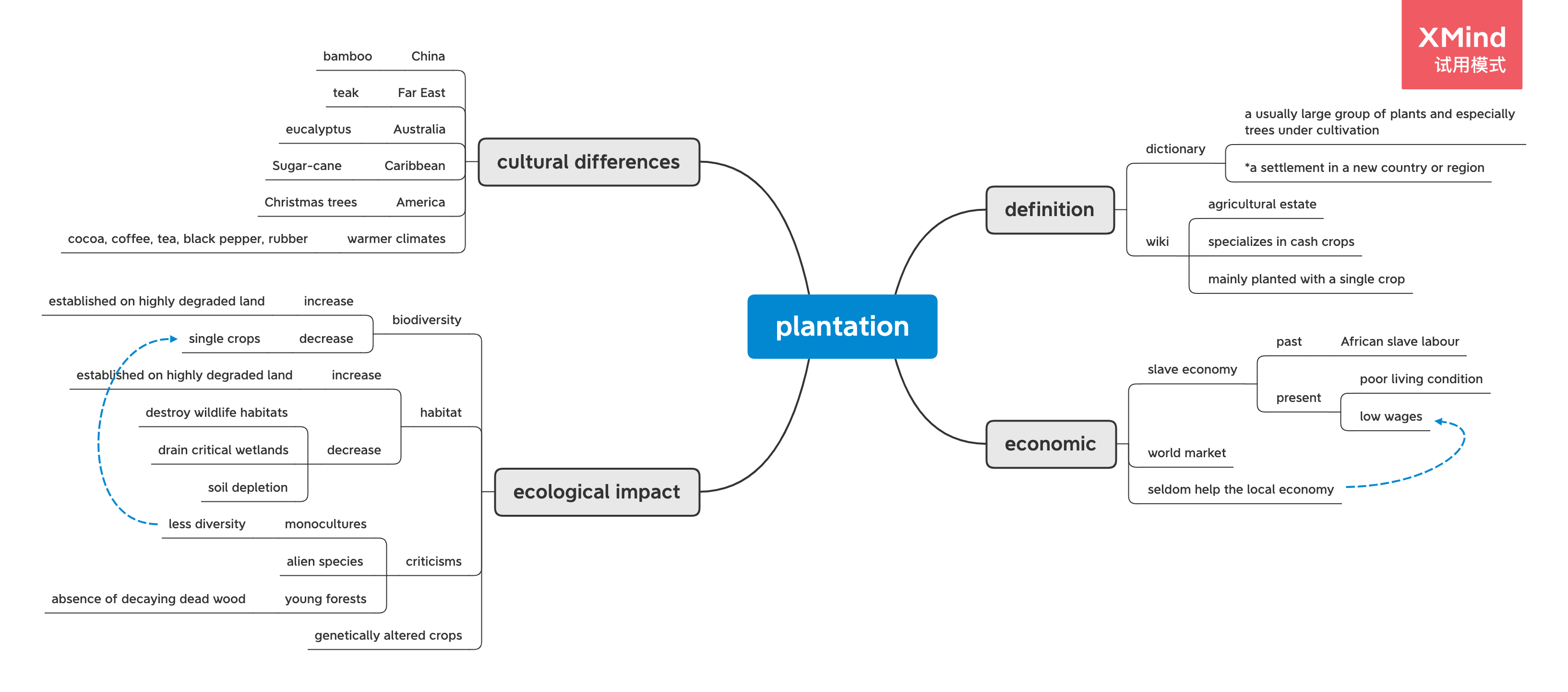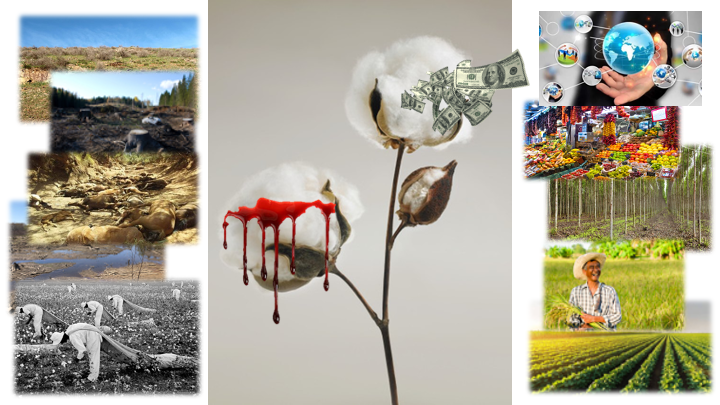
Here is a mind map I made based on the general research on the topic of plantation.
For the topic of plantation, there are two main aspects that are worth digging into: economic and ecological impact. These two aspects contains more detailed topics, for example:
- slave economy (past and present)
- world market influences
- local economy influences
- biodiversity
- habitat
- genetically altered crops
There are other topics that drove my attention when I was researching, for instance, why different crops are planted in different countries/regions; technology applications in modern plantation industry; the history of plantation, etc.
upsides:
- produce cash crops
- make money
- grow crops efficiently
- create jobs for local people
- a key component in the world market
- if planted on degraded lands, it can help increase biodiversity and habitat
downsides:
- low wages for the workers
- increase inequality
- decrease biodiversity and habitat
cultural differences:
- different crops:
- China: bamboo
- Far East: teak
- Australia: eucalyptus
- Caribbean: Sugar-cane
- America: Christmas trees
- different historical background (colonialism and slavery):
- America
- Europ
- Afica
- Asia
problems:
- worker’s condition
- environmental damage
norms:
- forest plantation management
experimental making:

Wentao, I like your map very much. In fact, low waves for the workers, increase inequality and other issues are also widely mentioned in the “forgotten” space. Globalization will indeed further aggravate the inequality of wealth. Now we can see the Christmas tree in China and bamboo in the United States. In fact, there is a huge world trade system behind it. And 90% of this system is completed by shipping, The flag of convenience system allows for ships owned in rich countries to be registered in poor countries. It was created to obscure legal responsibility for safety and fair labor practices. Today’s seafaring crews are drawn for the old and new Third Worlds: Filipinos, Chinese, Indonesians, Ukranians, Russians. The conditions they endure are not unlike those experienced by the lascars of the 18th century.
Therefore, I am reflecting on whether world trade brings us more benefits or more potential and invisible threats?